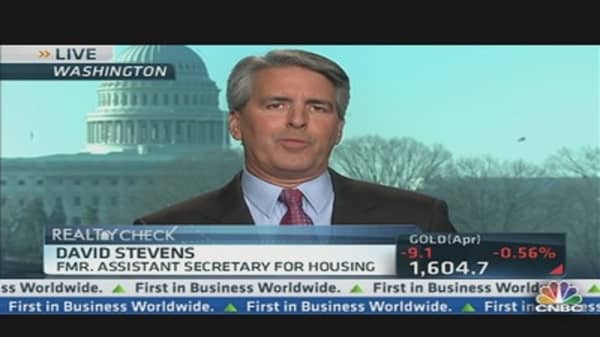As we head into the spring home buying and selling season, the housing comeback is showing signs of accelerating more rapidly than most anybody had thought at this point, David Stevens, president and CEO of Mortgage Bankers Association, told CNBC on Friday.
"The peak housing era of 2005 through 2007, those couple years produced some very dangerous characteristics we can't allow to ever come back," the former Obama Federal Housing Administration commissioner said in a "Squawk Box" interview. "But the market is clearly improving [now]" and could weather rising interest rates should the Federal Reserve start tightening at some point.





